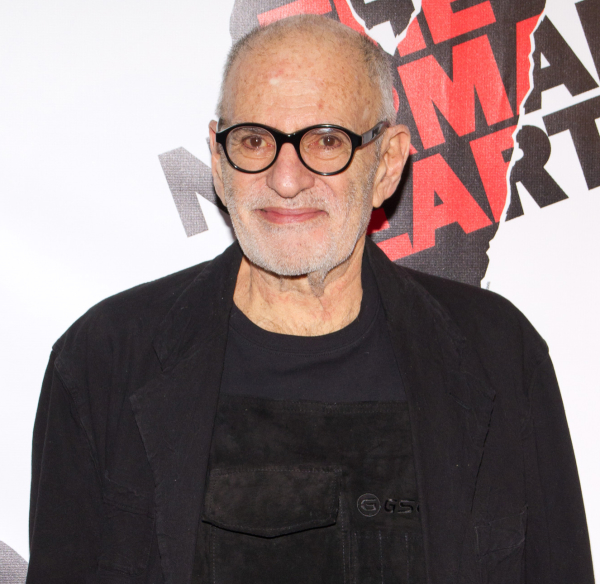Larry Kramer, Normal Heart Playwright and AIDS Activist, Has Died
Kramer is responsible for the formation of the Gay Men’s Health Crisis.

(© Tristan Fuge)
Larry Kramer, the playwright and foremost crusading activist against the AIDS crisis, has died at the age of 84. The cause, according to his husband, David Webster, in the New York Times, was pneumonia.
Born in Bridgeport, Connecticut, in 1935, Kramer enrolled at Yale University, where his father, older brother, and two uncles were alumni, in 1953. The period was not a pleasant one; Kramer admits to having attempted suicide due to feeling like "the only gay student on campus," an experience that made him realize the importance of becoming a crusader for gay rights. He graduated in 1957 with a degree in English.
At the age of 23, he took a job as a Teletype operator at Columbia Pictures and later won a position rewriting scripts in the story department. His first writing credit was as a dialogue writer for the comedy Here We Go Round the Mulberry Bush, and he received a 1969 Academy Award nomination for his screenplay of the D.H. Lawrence-adapted film Women in Love. He also penned the screenplay for the 1973 musical film adaptation of Frank Capra's Lost Horizon.
In the 1970s, Kramer began integrating gay themes into his work. The first of his produced plays was 1975's Four Friends (originally titled Sissies' Scrapbook). The year 1978 saw the publication of his groundbreaking novel Faggots, which explores the lifestyle of gay men on Fire Island and Manhattan. The novel caused an uproar in the gay community for its portrayal of that drug-and-sex-filled world and Kramer started to be considered a pariah in the gay community.
With the outbreak of AIDS in the early 1980s, Kramer got fully involved with activism, forming, with several close friends, the Gay Men's Health Crisis, an organization dedicated to the raising of funds for people stricken with the disease. During his tenure with the organization, Kramer condemned both the apathy of the gay community and New York City's mayor, Ed Koch, for his lack of a response. His militant style of communication proved too much, and he was ousted by the GMHC in 1983, despite serving on its board of directors.
His experiences served as the basis for his landmark drama The Normal Heart, which followed a writer/activist Ned Weeks and his struggle to form a GMHC-like organization as an unidentified disease ravages and kills gay men in New York City. Originally produced by Joseph Papp at the Public Theater in 1985, the drama ran for 294 performances. It was revived at the Public in 2004 by Worth Street Theater Company, where it ran for under two months. A major, critically acclaimed Broadway production in 2011 received the Tony Award for Best Revival and acting honors for cast members Ellen Barkin and John Benjamin Hickey. An Emmy-nominated film adaptation of The Normal Heart aired on HBO in 2014.
Kramer's activism never stopped; he was a key player in the forming of the AIDS Coalition to Unleash Power (commonly referred to as ACT UP), and published a book of nonfiction writing about the AIDS crisis in 1989 called Reports From the Holocaust: The Story of an AIDS Activist. A sequel to The Normal Heart, a Pulitzer-finalist play called The Destiny of Me, was produced off-Broadway in 1992. His lecture The Tragedy of Today's Gays was published in book form in 2004. The second volume of his long-awaited book The American People was released in January.
Kramer learned he was HIV positive in the late 1980s, when he underwent surgery for a congenital hernia. He received a liver transplant in 2001 at the Thomas E. Starzl Transplantation Institute at the University of Pittsburgh after getting turned down from Mount Sinai Hospital's organ transplant list due to his HIV-positive status. He married his longtime partner, the architect David Webster, in 2013.
At the time of his passing, Kramer was at work on a play looking at three plagues in the lives of the gay community: the AIDS crisis, the ongoing Covid-19 crisis, and the decline of the human body. According to the New York Times, it was titled An Army of Lovers Must Not Die.









